Lockdown: how to avoid cabin fever, by a submariner
Mar 31, 2020
7 mins
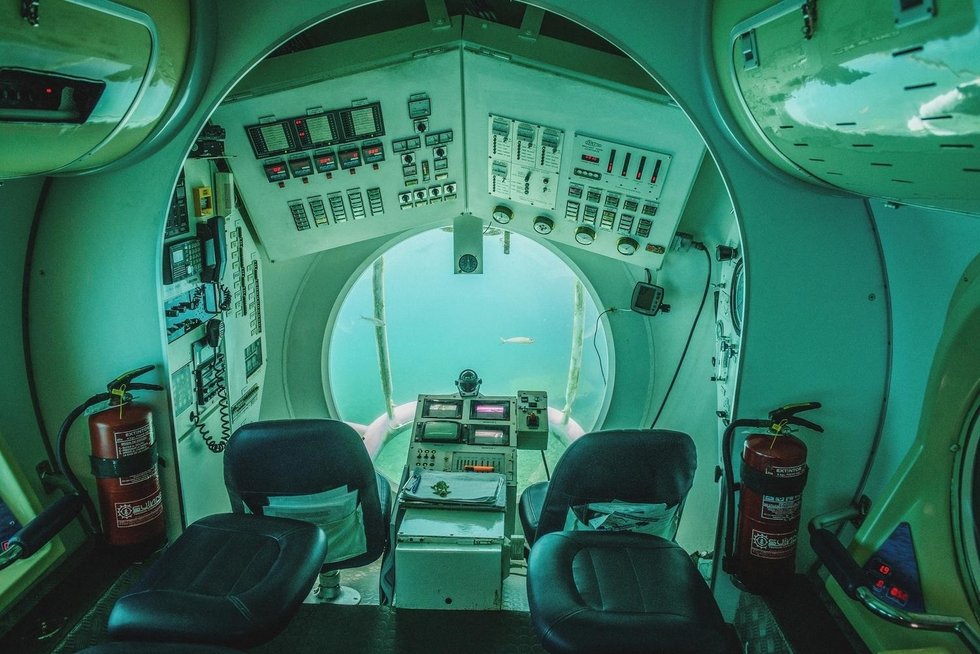

Journaliste - Welcome to the Jungle
He’s no stranger to lockdown. In fact, he chose it. In his role as a nuclear submarine officer from 1992 to 2002, Christophe Deldique regularly went on eight-week missions that would leave him totally cut off from the world. Sleeping in a cabin no bigger than two square meters in size, he learned how to be efficient and productive while living in extreme confinement. We asked Deldique for his advice on how best to get through the lockdown period.
How did you initially react when you set off for your first three-week mission in 1992?
In Lorient, I boarded La Sirène (The Mermaid), a small, diesel-powered submarine that has since been withdrawn from active service. It was 50 meters long and six meters in diameter, with a 50-strong crew. Straight away, I felt confined and overwhelmed. Each person had their own living space measuring two square meters and we had just under two liters of water each day to take a sponge bath, brush our teeth and freshen up our faces. But in the end, and against all the odds, I adjusted to this environment by working on personal growth.
It’s important to remember that the onboarding process for working on a submarine is unique because each sailor has volunteered for the mission and we’re trained in a wide range of trades. Everyone must be able to understand and see what’s going on in the submarine at any given moment. We must rely on the collective group. Solidarity and teamwork are very strong among the crew. Anyone who has a problem or doesn’t feel well will always get lots of support from the others.
How would you describe a typical day’s work in such a cramped space?
The main thing is not having the time to let yourself get bored. The perception of time must be kept as normal as possible or stress will gain the upper hand.
Daily routine on board a submarine follows a tight schedule, which is essential for survival in a confined space! We got a new duty roster every day that broke it down minute by minute, with time for work, exercise, cleaning, and meals, not to mention the time to recuperate. We followed a kind of relay system, which meant a team working on the bridge from midnight to 4 AM would be followed by another team that worked until 8 AM, and so on. We had different shifts every day. This required both physical and psychological endurance! The main thing was not having the time to let yourself get bored. The perception of time must be kept as normal as possible or stress will gain the upper hand.
What is the first piece of advice you would give to someone in lockdown?
Don’t bother planning more than five days ahead because the more you project into the future, the more time seems to expand.
You must plan every day, so it is as full and structured as possible. While it’s neither fun nor particularly easy, you must get up, eat, make yourself presentable, call your loved ones, and even do a yoga session—at the same time every day! Conversely, don’t bother planning more than five days ahead because the more you project into the future, the more time seems to expand. You will lose all sense of time. For example, if you tell yourself you’ll do a task “later”, what exactly does that mean? Will it get done in a week, a month, or a year? No one can know that, and neither can you.
If your home isn’t that big, I suggest reorganizing your living space…You’ll come to associate every part of your home with a specific activity and time of day.
If you are working remotely, bear in mind that following a solid, regular schedule will help you focus and be more productive. For example, tell yourself that you’ll spend a specific hour replying to emails, another on accounting, and so on. To make it easier on yourself, and if your home isn’t that big, I suggest reorganizing your living space so that you have an area for meals, another for exercise and another for work. You’ll come to associate every part of your home with a specific activity and time of day. This stops things from getting disorganized. On this matter, I also advise managers and employers to continue holding regular reviews in small groups and to give teams detailed roadmaps so they can still be efficient while working remotely.
Why do you think so many people are panicking or not following the lockdown recommended by the Government?
The announcement of a three-week lockdown generated a lot of stress because everyone knows that this period is going to last longer than that. But for how long? Nobody knows, and being in a state of uncertainty is anxiety-provoking. I remember when I was leaving on an eight-week submarine mission, even though it was going to be long and difficult, I got used to the idea, as did the rest of the crew. We all kept the return date in mind and that made it possible to get through it.
As far as the current health crisis is concerned, I think they should have announced a much longer confinement period, maybe 45 days, so it could be reduced if the crisis was brought under control sooner than expected. That would have made it easier for people to accept the situation.
How can we avoid letting panic take over?
To reduce the stress and anxiety caused by confinement, I suggest thinking about how important your actions are for the common good.
To reduce the stress and anxiety caused by confinement, I suggest thinking about how important your actions are for the common good: we must follow the lockdown plan to save our loved ones, healthcare workers, and so on. In a submarine, it’s the same. When you board a submarine, it’s for a strategic reason: you are defending the interests of your country. No one stays locked inside a metal box 200 meters below the sea for nothing!
You must also remind yourself that we will all come out of this ordeal stronger people. When I’m having a tough time, I tell myself that I managed to live in spartan conditions for weeks on end because of my mental attitude. That’s proof I can count on.
Confinement can push people over the edge and lead to conflict. How can we defuse these situations?
Like the army, in a submarine, we take a lot upon ourselves. While we are constantly discussing things and listening, it’s not always enough. People who can’t manage their anger must isolate themselves until they regain their composure. It’s a kind of confinement within confinement.
There is always a reason why someone gets angry or seeks out conflict and to defuse the situation, you must absolutely get to the bottom of their malaise.
I remember a particularly tense situation in 1994. We were on a tiny submarine heading for the North Sea. The commander made a comment to my second-in-command, who oversaw the naval routes, saying,“It’d be nice to be a bit more rigorous and not go too fast.” Even though it wasn’t his character, my second-in-command literally exploded. Unable to control himself, he squared up to fight the commander. Four of us had to calm him down and we brought him back to his room. We stayed near him for an hour: he managed to get all his anger out and then fell asleep. After this episode, we learned that he had taken his daughter to A&E just before boarding and that he was worried about her. He left when we got to our first port of call. This is just to say that there is always a reason why someone gets angry or looks for conflict. To defuse the situation, you must absolutely get to the bottom of their malaise.
That’s also why personal space is so important. In a cramped space, how can you make sure you have privacy?
It’s complicated! Let’s just say that we were only alone when we closed our bunk curtains. It was very brief. Beyond that, we were careful to respect each other’s privacy. No one ever walked around naked and we made sure to take turns showering so as not to inconvenience others. I think it’s easier to deal with confinement at home.
It’s common knowledge that a cook’s role is important on board submarines. To help people deal with lockdown, what role should meals play?
Eating is the top priority for humans. And eating well is fundamental when you’re locked up. You gain roughly three to five kilograms during a submarine mission, which is normal. In this situation, you must eat food you like, and above all, it must taste good. But be careful not to confuse “tasty” with “greasy”! That’s why some of the best chefs in the country work in submarines. You have to be talented and extremely creative to be capable of making excellent meals for a large number of people in a confined, cramped space. It’s not surprising that they usually end their careers working for heads of state.
It’s rare to have a chef at home, so you must push yourself a bit on the cooking front even when you’re alone. This is part of maintaining a healthy lifestyle: just because I’m confined doesn’t mean that I don’t need to clean myself up every day or dress like I’m going to work, or that I stop exercising.
Exercise is well-known as a remedy for depression. How do you work out on a nuclear submarine where the living space is so small?
Stop giving yourself guilt trips: just because you’re spending the whole day in front of your computer doesn’t mean you’re more productive. In fact, it’s quite the opposite.
Submarines are equipped with rowing machines and racing bikes. If someone is feeling anxious or depressed, they exercise until they are physically exhausted. Only this kind of fatigue gets rid of stress and depression. That’s why you must plan to do it as often as possible during a lockdown. Stop giving yourself guilt trips, too: just because you’re spending the whole day in front of your computer doesn’t mean you’re more productive. In fact, it’s quite the opposite.
So, if you’re well-organized and take proper care of yourself, everything will turn out okay?
That’s not enough, unfortunately! We are social beings: our genes show that we need social interaction to thrive. We must be careful that containment does not derail social bonds. In a submarine, for example, you don’t have access to the outside world. I could only get one 40-word message from my loved ones, once a week, and I wasn’t able to respond. To fight off boredom, we’d have meetings, play board games, or watch movies in small groups. I recommend setting up virtual happy hours or remote meetings, making sure to turn your camera on, and regularly calling family and friends.
It’s also important to remember that living in confinement has certain virtues and it can help strengthen ties with loved ones or build new bonds with colleagues. Ultimately, it’s clear that, up against a tiny bug like the coronavirus, we are all equal.
Translated by Andrea Schwam
Photo: Welcome to the Jungle
Follow Welcome to the Jungle on Facebook, LinkedIn, and Instagram, and subscribe to our newsletter to get our latest articles every day!

More inspiration: The Covid crisis

Debate: Should we mandate vaccines in the workplace?
We asked two bioethicists to help us unpack the arguments on both sides and explain the ethical principles underpinning our public-health policy.
Mar 01, 2022
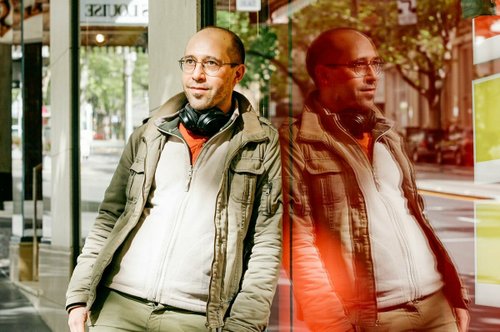
‘Don’t give up’: 262 days of working in lockdown in Melbourne
Melbourne just made the record for the most 'confined' city in the world. What's it like being a worker there? These professionals testify.
Nov 09, 2021
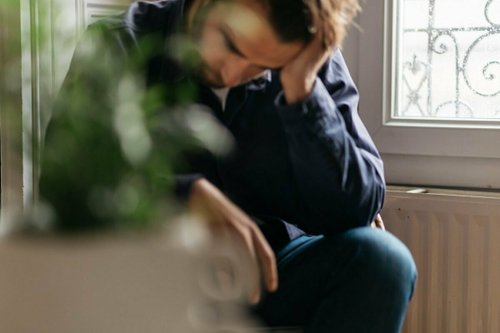
Surviving the pandemic without government support
UK workers who were excluded from government support tell us about their year without work or income.
Jun 16, 2021
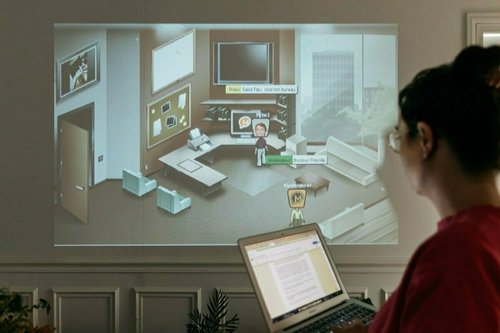
How the pandemic is driving a virtual tech boom
As the pandemic has accelerated the rise of remote work, it has also advanced the development of virtual technology, shaping the future of work.
Jun 08, 2021
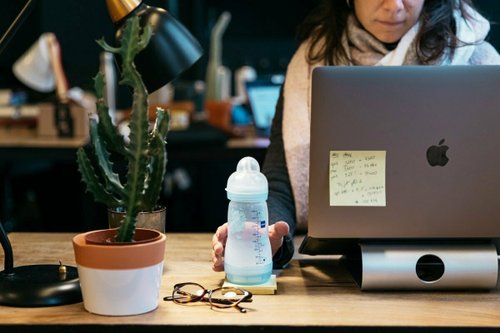
How Covid is destroying the careers of mothers
Among Covid-19's countless victims are the careers of women forced to make the choice of leaving their jobs to care for their children and families.
Apr 22, 2021
The newsletter that does the job
Want to keep up with the latest articles? Twice a week you can receive stories, jobs, and tips in your inbox.

Looking for your next job?
Over 200,000 people have found a job with Welcome to the Jungle.
Explore jobs